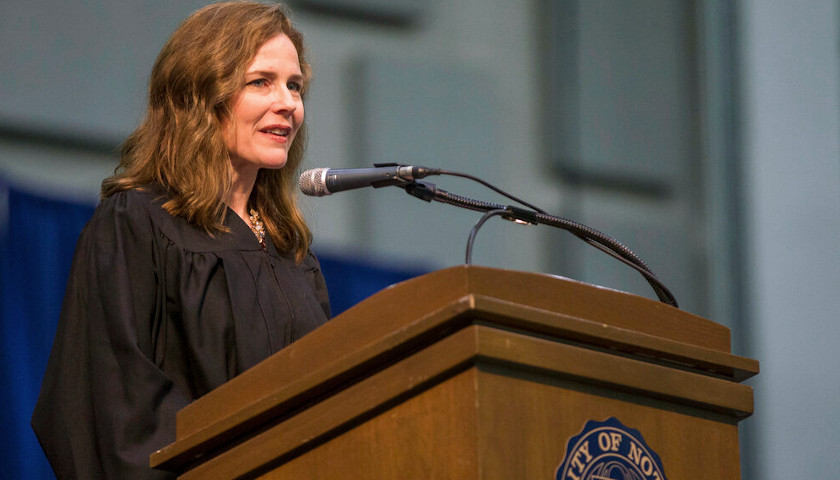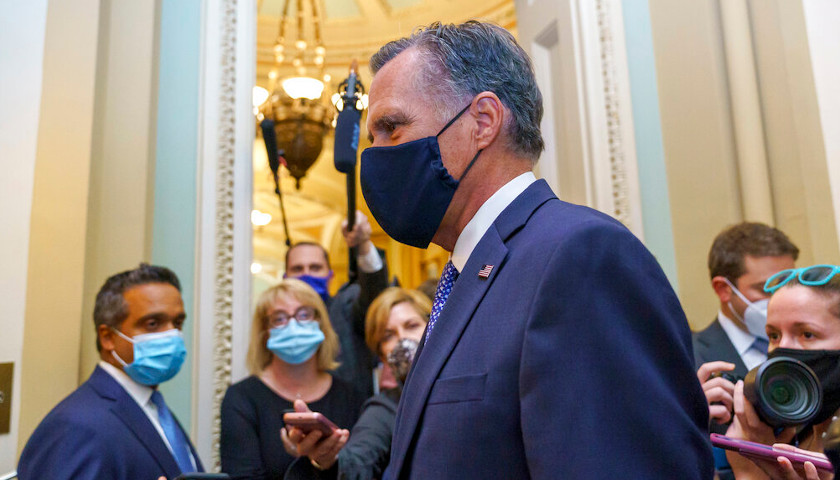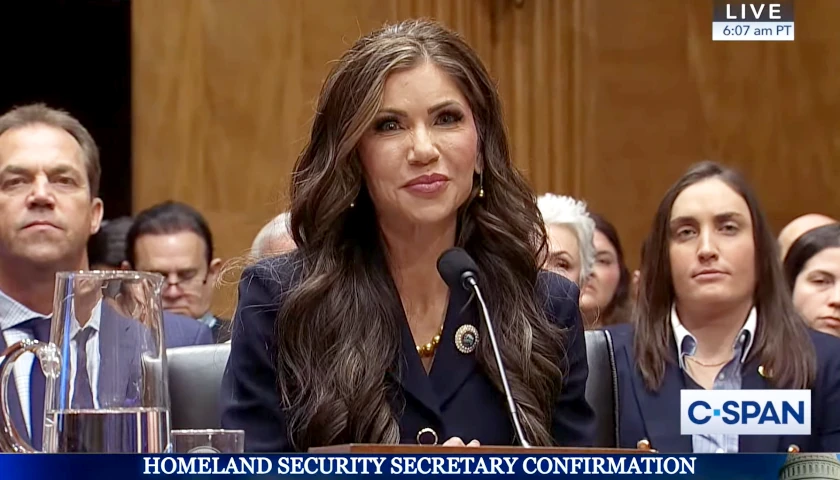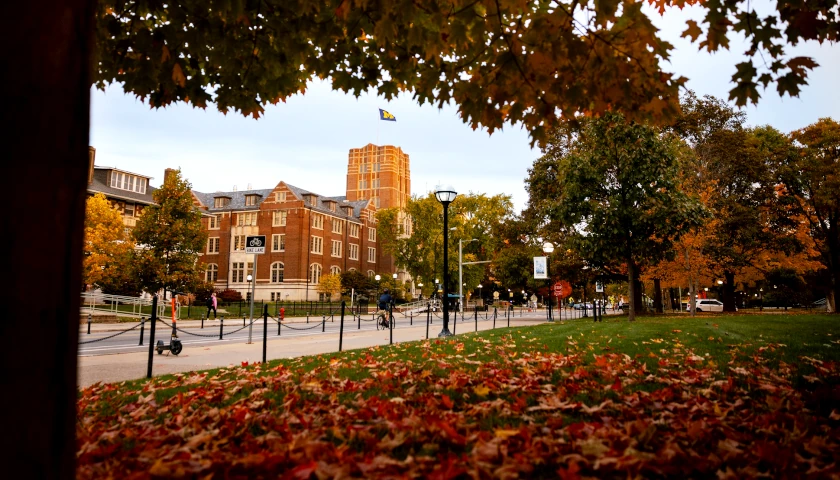by Lisa Mascaro, Zeke Miller and Jonathan Lemire
WASHINGTON, D.C. (AP) — Senate Republicans have swiftly fallen in line behind President Donald Trump’s push to fill the late Justice Ruth Bader Ginsburg’s Supreme Court seat as one of the last holdouts, Sen. Mitt Romney, said Tuesday he supports a vote despite Democrats’ objections it’s too close to the Nov. 3 election.
Trump, who will announce his nominee Saturday, is all but certain to have the votes to confirm his choice.

“I guess we have all the votes we’re going to need,” Trump told WJBX FOX 2 in Detroit on Tuesday, “I think it’s going to happen.”
Conservatives are pushing for a vote before Election Day. Republicans hold a slim 53-47 majority in the Senate, and a simple majority is needed for confirmation. But with early voting for president already underway in several states, all sides are girding for a wrenching Senate battle
Romney, R-Utah, backed up his decision by saying it’s not “written in the stars” that the court should have a liberal bent, and Trump’s pick will tip the nation’s high court to become more conservative.
It’s “appropriate,” he told reporters at the Capitol, “for a nation which is, if you will, center right, to have a court which reflects a set of right points of view.”
Trump and Senate Majority Leader Mitch McConnell have launched one of the quickest confirmation processes in modern times. No court nominee in U.S. history has been considered so close to a presidential election.
McConnell was holding private meetings at the Capitol and later at GOP campaign headquarters to assess next steps.
Democrats, led by presidential nominee Joe Biden, vow a tough fight but need four GOP defections to block consideration. So far, two Republicans have said they oppose taking up a nomination at this time, but no others are in sight. Under Senate rules, Vice President Mike Pence can break a tie vote.
Senate Judiciary Chairman Lindsey Graham, who will shepherd the nomination through the chamber, said Republicans have the support they need. Hearings could start in early October, aides said.

“The nominee is going to be supported by every Republican in the Judiciary Committee,” Graham, who faces his own tough reelection in South Carolina, told Fox News. “We’ve got the votes to confirm the justice on the floor of the Senate before the election and that’s what’s coming.”
Trump met with conservative Judge Amy Coney Barrett at the White House on Monday and told reporters he would interview other candidates and might meet with Judge Barbara Lagoa when he travels to Florida later this week. Conversations in the White House and McConnell’s office have been increasingly focused on Barrett and Lagoa, according to a person granted anonymity to discuss the private deliberations.
Barrett has long been favored by conservatives, and those familiar with the process said interest inside the White House seemed to be waning for Lagoa amid concerns she did not have a proven record as a conservative jurist. Lagoa has been pushed by some aides who tout her political advantages of being Hispanic and hailing from the key political battleground state of Florida.
Democrats point to hypocrisy in Republicans trying to rush through a pick so close to the election after McConnell led the GOP in refusing to vote on a nominee of President Barack Obama in February 2016, long before that year’s election.
Romney, the GOP’s 2012 presidential nominee, dismissed that argument, saying “it was not unfair” for Republicans to refuse to consider Obama’s choice of Merrick Garland. Romney would not say whether he supports Barrett or any particular candidate. But he acknowledged the court will shift to become more conservative.
“We may have a court which has more of a conservative bent than it’s had over the last few decades,” Romney told reporters on Capitol Hill. “But my liberal friends have over many decades gotten very used to the idea of having a liberal court. And that’s not written in the stars.”
Barrett, 48, a judge on the U.S. Court of Appeals for the 7th Circuit, was a strong contender for the seat that eventually went to Brett Kavanaugh in 2018. At the time, Trump told confidants he was “saving” Barrett for Ginsburg’s seat.
Trump has said he would choose a woman, and he gave a nod to another election battleground state, Michigan. White House officials confirmed he was referring to Joan Larsen, a federal appeals court judge there.
The president also indicated that Allison Jones Rushing, a 38-year-old appellate judge from North Carolina, is on his short list.
Conservative groups are insisting on a Senate confirmation vote before the election, according to a person familiar with a late Monday gathering of representatives from various organizations, and aides from the White House and Congress. They argue the election could be disputed with legal battles dragging on for weeks.
Democrats say voters should speak first, on Election Day, and the winner of the White House should fill the vacancy. Biden appealed to GOP senators to “uphold your constitutional duty, your conscience” and wait until after the election.
But few Republicans are willing to cross Trump. The president has criticized Republican Sens. Susan Collins of Maine and Lisa Murkowski of Alaska for opposing a vote before elections. Trump warned they would be “very badly hurt” by voters.
The mounting clash over the vacant seat injects new turbulence in the presidential campaign with the nation still reeling from the coronavirus pandemic that has killed 200,000 Americans, left millions unemployed and heightened partisan tensions and anger.
Ginsburg, 87, died Friday of metastatic pancreatic cancer. She will lie in state at the U.S. Capitol this week, the first woman accorded that honor. Her casket will be on view Wednesday and Thursday on the steps of the high court.
No nominee has won confirmation so quickly since Sandra Day O’Connor — with no opposition from either party — became the first woman to serve on the Supreme Court in 1981.
– – –
Lisa Mascaro, Zeke Miller and Jonathan Lemire are reporters for The Associated Press. Lemire reported from New York. Laurie Kellman, Mark Sherman, Mary Clare Jalonick, Andrew Taylor, Kevin Freking and Mike Balsamo in Washington, Alex Jaffe in Philadelphia, Bill Barrow in Atlanta and Steve Peoples in New York contributed to this report.
About the Headline Photo: Sen. Mitt Romney, R-Utah, leaves the Senate Chamber following a vote, at the Capitol in Washington, Monday, Sept. 21, 2020. Romney is one of four Republicans who could oppose a vote on a replacement for the late Justice Ruth Bader Ginsburg prior to Election Day. (AP Photo/J. Scott Applewhite)





